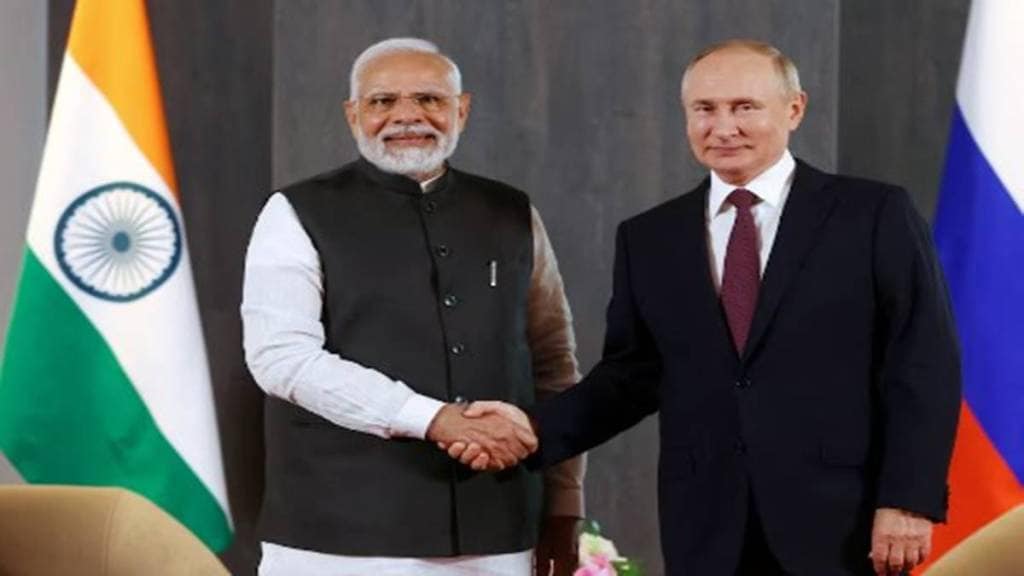Prime Minister Narendra Modi is set to embark on a significant two-nation tour, visiting the Russian Federation and the Republic of Austria from July 8-10, 2024. This visit marks a strategic move in India’s foreign policy, focusing on deepening bilateral relations and exploring new avenues of cooperation.
Visit to Russia: A Renewed Partnership
Modi’s visit to Moscow on July 8-9, at the invitation of President Vladimir Putin, will be his first since Russia’s military actions in Ukraine. This trip is pivotal as it aims to fortify the India-Russia relationship, which has seen fluctuating dynamics in recent years. The two leaders will convene for the 22nd India-Russia Annual Summit, discussing a broad spectrum of issues including regional and global security, trade, and economic ties.
in an official statement announcing the visit, Ministry of External Affairs highlighted that the summit will cover “the entire range of multifaceted relations between the two countries” and address “contemporary regional and global issues of mutual interest.” This visit is expected to dispel speculations about any drift in Indo-Russian relations and reaffirm India’s commitment to maintaining a balanced diplomatic stance.
Russia views this visit as an opportunity to showcase its ongoing diplomatic engagement despite Western attempts at isolation.
Key Discussions and Agreements
One of the crucial topics on the agenda is the enhancement of trade and economic ties. India has significantly increased its imports of Russian oil, taking advantage of discounts on prices shunned by Western countries.
According to information in the public domain, during this visit, India is expected to negotiate a higher discount on Russian oil, potentially beyond the current US$3 to US$3.5 per barrel. Additionally, India seeks formal approval for a unit of Oil and Natural Gas Corporation (ONGC) to retain its 20 percent stake in the Sakhalin 1 oil project in Russia’s Far East.
Beyond energy, India aims to boost its exports of pharmaceuticals, machinery, and other goods to Russia. The bilateral trade between the two nations has surged by 33 percent to US$65.7 billion in the last fiscal year, underscoring the robust economic engagement.
Strategic and Security Concerns
Security concerns will also feature prominently in the discussions. According to Kremlin spokesperson Dmitry Peskov, “regional security and global security issues always figure high on the agenda” of such meetings. Given the trust and mutual political will between Modi and Putin, an open exchange of views on various pressing issues is anticipated.
This summit will not only revisit the historical ties between the two nations but also explore new dimensions of strategic partnership. The last India-Russia Annual Summit was held in December 2021 in New Delhi, making this upcoming summit a significant event after a three-year hiatus.
Visit to Austria: Strengthening European Ties
Following his visit to Russia, PM Modi will travel to Austria, marking the first visit by an Indian prime minister to the European country in 41 years. Scheduled for July 10, Modi’s visit to Austria signifies India’s intent to strengthen its relations with European nations.
Modi will meet with President Alexander Van der Bellen and hold discussions with Chancellor Karl Nehammer. The agenda includes talks on bilateral cooperation and addressing business leaders from both countries. This visit aims to bolster economic ties and explore new opportunities for collaboration in various sectors.
Engaging the Indian Diaspora
In both Moscow and Vienna, Modi will engage with members of the Indian community, reinforcing the cultural and social bonds between India and the Indian diaspora abroad. These interactions are vital for maintaining strong people-to-people connections and leveraging the diaspora’s role in fostering international relations.
A Diplomatic Balancing Act
Prime Minister Modi’s upcoming tour underscores India’s strategic balancing act in its foreign policy. While the West has sought to isolate Russia, India continues to engage with Moscow, highlighting its independent stance in global geopolitics. This tour is expected to strengthen India’s diplomatic ties with both Russia and Austria, reinforcing its position as a significant player on the global stage.
The visit is also timely, given the evolving geopolitical landscape and India’s growing role in international affairs. By engaging with both Eastern and Western powers, India aims to navigate complex international relations while securing its national interests. This two-nation tour is a testament to India’s proactive and dynamic foreign policy approach, fostering stronger bilateral ties and promoting global cooperation.

